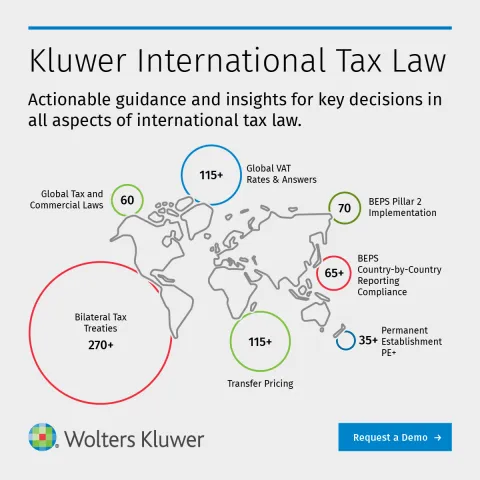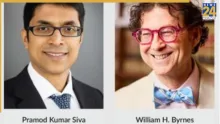Permanent Establishment: Welcome to the Hotel California*
September 16, 2025
The Indian Supreme Court has again expressed its views on the meaning of PE in the context of franchise arrangements for the operation of hotels in India under a well known brand. It also reflects a common structure in the hotel industry where ownership and operation of an hotel is separate.
In Hyatt International Southwest Asia Ltd v ADIT 2025 INSC 891, The taxpayer, a UAE resident company concluded two “Strategic Oversight Services Agreements” with an Indian resident company, each relating to a hotel, one in Delhi and one in Mumbai for 20 years with possible 10 year extension.
Franchise arrangements
The agreements required the hotel to be operated in accordance with standards comparable to those prevailing in international hotels operated by Hyatt International and its subsidiaries. The UAE company was responsible for providing strategic plans, policies, procedures, and guidelines to ensure adherence to the ‘Hyatt Operating Standards’. The UAE company had complete control in formulating and establishing the strategic plan for all aspects of hotel operations, including branding, marketing, product development, and daily operations as well as policies governing the hotel’s operating bank accounts.
The UAE Company was permitted to identify, recruit and assist in appointing non-local hotel employees – including the General Manager, key personnel, and members of the Executive Committee – on behalf of the hotel owner and to the hotel’s human resource policies had to be aligned with Hyatt Operating Standards. The UAE Company’s services were to be rendered from Dubai and was not obligated to send any employee in India. Occasional and temporary visits by its employees to India at its discretion was permitted and it may also temporarily assign its own employees to serve as full-time executive staff at the hotel.
The agreement specified that if the hotel owner desired to obtain financial assistance for the construction or refinancing of the hotel, or if the hotel was to be used as collateral for any borrowing unrelated to the hotel business, the owner was required to obtain a non-disturbance and attornment agreement from the lender acceptable to the UAE Company.
The presence of employees of the UAE Company in India was somewhat confusingly presented in the judgement as submissions of the parties, rather than as evidence. The taxpayer said that six employees visited India and stayed at the hotels during the relevant years and routine visits. They also visited other Hyatt hotels across India including in Goa, Bengaluru, Kochi, and Chennai. The tax authority said employees made frequent and regular visits to India to oversee operations and implement the agreement. Some remained in India for up to nine months and were involved in substantive hotel operations. What seems clear it that the presence and activities of the employees in India fell short of constituting a services permanent establishment within Article 5(2)(i) of the India-UAE Tax Treaty.
Consideration
The consideration paid by the Indian hotel owner was calculated as a percentage of room revenue and other revenues plus income, directly or indirectly derived from the hotel’s operations, as well as cumulative gross operating profit.
Day-to-day hotel operation
Day-to-day operation of the hotel were carried out by Hyatt India Pvt. Ltd, and the Indian resident hotel-owning company, under a separate Hotel Operating Services Agreement entered into with the hotel owner.
Fixed place of business
The Supreme Court ruled that the UAE Company had a permanent establishment in India within Art 5(1) of the India-UAE Tax Treaty. Citing its earlier decision in Formula One World Championship Ltd v COTIT (2017) 15 SCC 602, it considered that the essential conditions for a permanent establishment to exist must be satisfied are the place must be “at the disposal” of the enterprise, and the business of the enterprise must be carried on through that place. The Court further held that a PE the three core attributes that must be demonstrated are stability, productivity, and a degree of independence. It held that the 20-year duration of the agreement “coupled with the appellant’s continuous and functional presence, satisfies the tests of stability, productivity and dependence.”
The court noted that ‘the “disposal test” is pivotal’: ‘the enterprise must have a right to use the premises in such a way that enables it to carry on its business activities. This test is to be applied contextually, taking into account the commercial and operational realities of the arrangement.’ Furthermore. ‘the test is not whether a formal right of use is granted, but whether, in substance, the premises were at the disposal of the enterprise and were used for conducting its core business functions.’
The court ruled that the fact that daily operations were handled by Hyatt India Pvt Ltd., a separate company, did not determine, saying that ‘it is well established that legal form does not override economic substance in determining PE status. The extent of control, strategic decision-making, and influence exercised by the appellant clearly establish that business was carried on through the hotel premises, satisfying the conditions under Article 5(1).’
In my view the Court’s analysis is questionable. Article 5(1) requires not just business to be carried on. It must be the business of the non-resident enterprise. The failure to separately identify the business of the UAE Company as licensor of the Hyatt business format and Hyatt Operating Standards with the services it was to provide, resulted in a conflation of the UAE Company’s business with that of its customer, the Indian hotel owner.
This resulted in first, not distinguishing stewardship activities to ensure compliance with Hyatt standards (for the benefit of the UAE Company), which is not the provision of a service (Morgan Stanley & Co v DIT (2007) 7 SCC 1) from any services provided and whether the employees who visited the hotels in fact provided any services or merely undertook stewardship activities there.
Second, where an enterprise is present at the premises of its customer, a detailed examination of the facts is needed to determine whether that presence is merely intermittent, given the differing submission of the parties on what the facts were, as well as the nature of activities undertaken there. The court noted that the OECD Commentary provided not clear guide when an enterprise is present at its customer’s premises but just examples.
The court held that whether the enterprise has a right of disposal over the premises is a fact-specific inquiry. However, the ruling also appears to conflate control over the business with control over the premises. The latter determines whether the premises are at the disposal of the enterprise. The Agreement authorised the UAE Company to formulate policies relating to guest admittance and use of premises. The latter again would be relevant to this question but was not explored. In my view, a right of disposal requires more than mere presence at premises. It involves entitlement by right to exercise control over the premises. Presence is no more than evidence of access.
Similarly, recourse to economic substance over form does not permit piercing of the corporate veil as a matter of course. As in Formula One, the jurisprudential basis for this finding is not set out in the decision. Indeed, the OECD Commentary on Article 1 (paragraphs 79 and 80) cautions against the use of such concepts where there is no clear evidence of the treaty being abused.
Role of UN and OECD Models
The Court said that similar provisions to those in Article 5 of the Treaty are found in international models such as the UN Model (2021) and the OECD Model (2017). However, the Treaty was concluded in 1992. In particular no anti-fragmentation rules such as in Article 5(4.1) of the Model Treaties is present. Thus a more thorough analysis would have looked at each hotel separately to determine whether either, on the facts, either of them constituted a permanent establishment.
Although OECD Commentary was cited indirectly in relation to the need for the business to be established at a distinct place to be “fixed”, there was no consideration of whether two hotels, in different cities, could meet this together. The Commentary would suggest not.
Conclusions
While the approach of the court is clear and gives non-residents who have any business activity in India an idea of the direction of travel, the decision is less likely to provide a persuasive authority in other jurisdictions on this difficult and elusive issue. We still await a judgement more detailed examination of the relevant facts and a more penetrating analysis of the treaty provisions.
The High Court had already addressed the question of attribution of profts (which was not the subject of the Supreme Court Appeal):Just how far does the AOA go?
*With apologies to the Eagles: iconic 1977 song "Hotel California" written by Don Felder, Don Henley, and Glenn Frey.
You may also like






